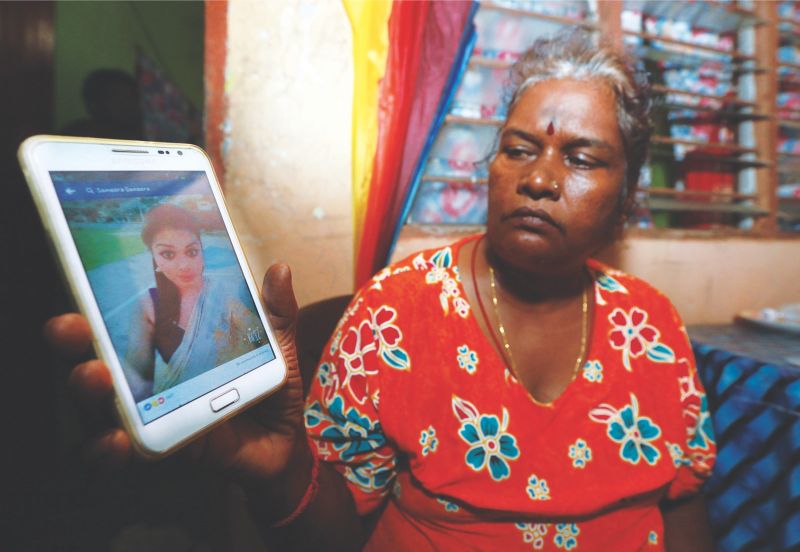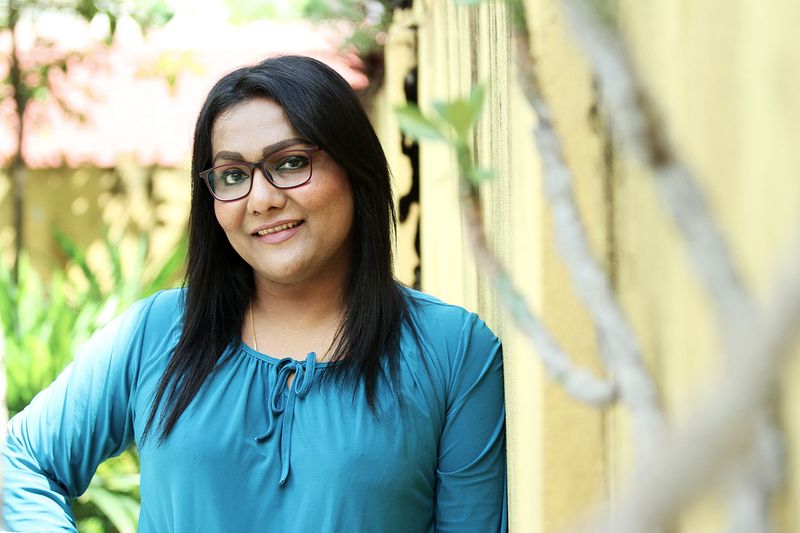KUALA LUMPUR, Nov 19 — From outside, the one-storey house looks like just any other on this narrow road looping inside a Chinese new village in a Klang Valley suburb — the area a pocket of old familiarity amid hectic development around it.
Its coat of white paint, relatively fresh compared to the neighbours, masked the house’s true age. Stepping in, you start to notice that the space is much bigger than you thought. The long corridor stretches to the back door, leading to a sizeable compound behind.
“We don’t really call it a shelter,” said transgender activist Nisha Ayub as she welcomed us to the living room. The furniture were spartan and mostly mismatched as they had all been donated.
Nisha keeps an office at the back, where she spends most of her times lately, running the SEED Foundation that works with the transgender community. The lodging house, called T-Home, is its latest effort in offering trans women a safe space amid a dire environment for them in Malaysia.
“Usually when I refer trans women to a shelter home, they’d face many requirements. The first thing is you have to cut your hair, act like men. It’s not hard to get accepted in a shelter, but only if you obey such rules,” Nisha said.
“Trans women” refer to those who were born male but associate themselves with the female identity. In Malaysia, Muslim trans women can be charged with the Shariah offence of men “wearing female attire and posing as women”.
A bed to call your own
There are four rooms that can accommodate up to eight trans women at one time — each with two beds, a bedside table, a lockable cupboard, and air-conditioning that is only switched on when just the fan is no longer enough.
Lodgers are expected to obey a set of rules, the most important being no sex work and drugs, with “ice” or methamphetamine a major problem within the community. Three lodgers had moved out of the home on their own the moment they relapsed, Nisha admitted.
The residents share meals of rice and one dish three times a day, taking turns to cook. There are two long-term occupants at the moment — one of them, Rozita (not real name), used to work as a chef.
When Nisha first mooted the idea, she had wanted to provide a space for elderly trans women — those aged 50 and above — who are more prone to illnesses of old age, and find it harder to spend the rest of their lives homeless.
“Older trans women need to get health checkups more often. It’s also harder to apply for welfare aid. Most of the elder Muslim trans women decided to cut their hair, have to pretend to be accepted by the society.
“Over here, we don’t judge you by your appearance,” said Nisha.
Rozita, 50, said it was not really an accident when she found herself homeless three years ago near Pudu after she missed her bus back to her workplace and lodging in a neighbouring state. She later became a familiar face at SEED’s Chow Kit centre.
“As you get older, you wish to spend some time alone. You want to be close to those who understand you, rather than your own blood,” said the Perak-born trans woman.
She lamented the difficulty for the transgender to apply for welfare aid, blaming the system for its alleged preferential treatment, consequently encouraging those who “pretend and lie”.
The neighbourhood of charity
In the end, T-Home opened its doors to anybody regardless of age, health status, ethnicity and religious backgrounds — “We have no religious icons on display,” Nisha said — especially trans women who find themselves homeless in the red light area of Chow Kit.
Nisha said the place is also open for emergency cases, giving trans women who are in trouble a place to get their feet back and return to a sustainable life.
Suffering from diabetes and kidney problems, Rozita said she is no longer able to go through a day job. But as a side job, she helps “babysit” several cats for an animal shelter.
“At least this helps with my savings,” she said, showing us two cages at the left side of the house, one with a pregnant black cat named Venus and another with three kitten siblings, all in white with blue eyes.
And no, there is no signboard advertising T-Home, for security reasons. But the neighbourhood has been more than welcoming and those next door are very supportive of the initiative, Nisha said.
“It is safe here, people have no problems with us. When we first started I went around the neighbourhood, I saw several old folks’ homes on the same street.
“I think this area is all about charity,” she said, pointing to a Buddhist temple down the street that regularly donates vegetarian meals and fresh vegetables to everyone in the community, including to T-Home.
Nisha related that a Malay woman staying across the street often visits the T-Home residents for chats, and offers them motorcycle rides out to the main road so they can catch the bus.
“I would say ‘hi’ whenever I see the neighbours. But this place gets quiet as early as 8pm,” said Rozita. She said the residents would usually hang out in the living room before retiring early.
Risk of gender-based violence real
Elsewhere across the country, Nisha said the transgender community is more vulnerable to violence when they are homeless, especially in Chow Kit.
Nisha pointed at the case of Sameera Krishnan, 26, who was witness in her own kidnapping case, for which two men were charged and were set to face the court in March this year.
“She didn’t know where to go, there was no shelter for her. She ended up running all over the country looking for protection, until she ended up in Kuantan,” she recalled.
Sameera was found brutally murdered in the Pahang capital in late February, just a month before she was to appear in court. She was found with a gunshot wound and her body mutilated.
In a 2014 report, Human Rights Watch said Malaysia is one of the world’s worst countries to be transgender, detailing social ostracism, discrimination, and harassment, sexual abuse and arrest by authorities.
“The main reason I got a place far away from Chow Kit is to keep them away from the environment there, get raided by the police,” Nisha said.
“We have always wanted to open this home, but we never had the ‘pesos’,” she added, using the community slang for cash.
T-Home currently covers its rent solely from public contribution. To donate to SEED, you can find more details here.
*Tomorrow is the Transgender Day of Remembrance, celebrated worldwide on November 20 in memory of those murdered as a result of transphobia, and to increase awareness of violence consistently endured by the transgender community.






















